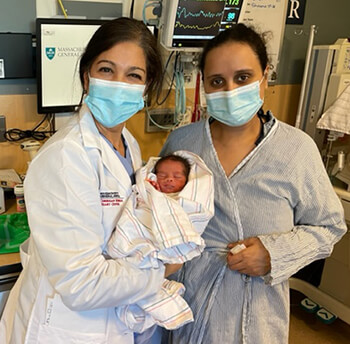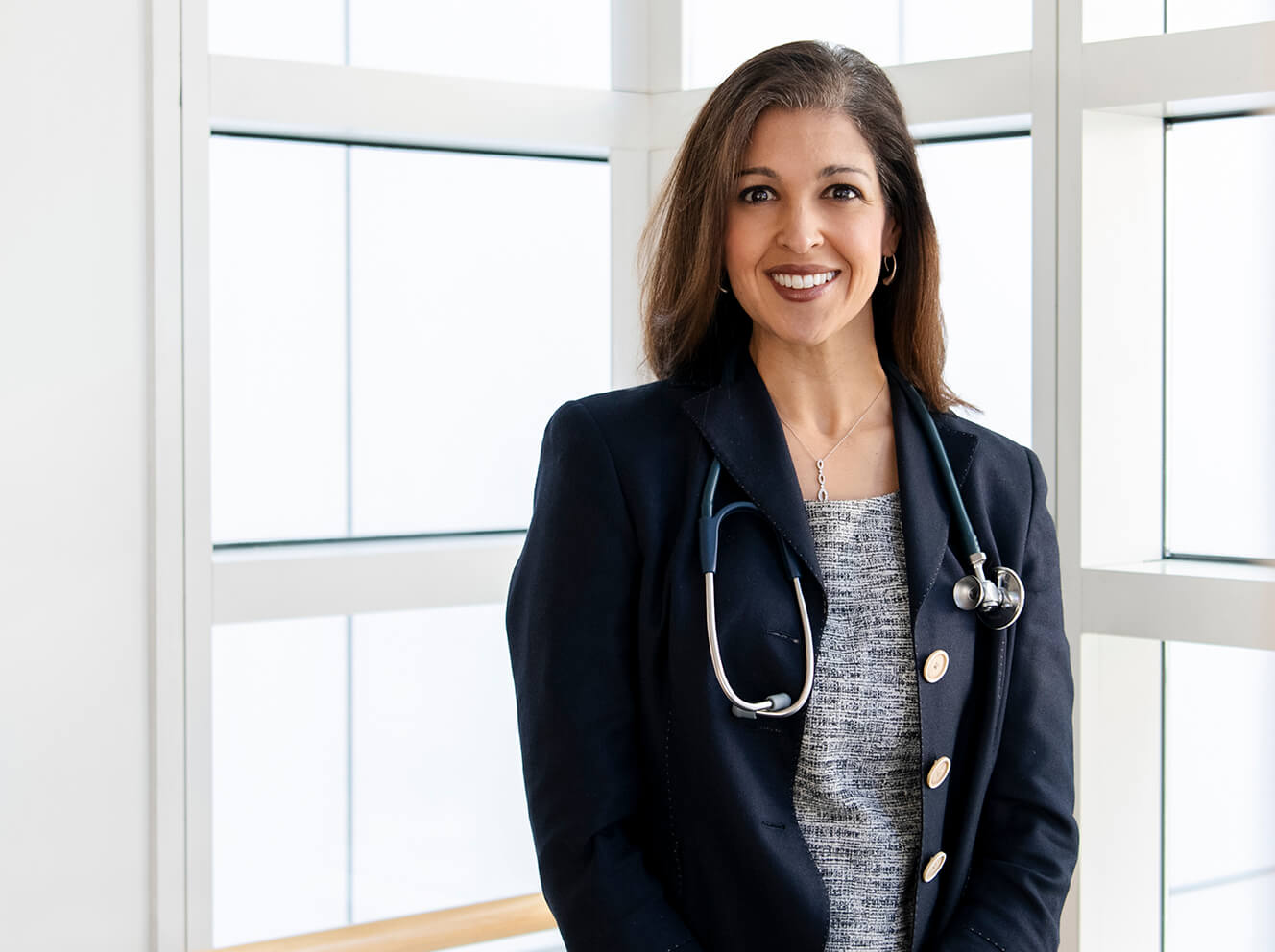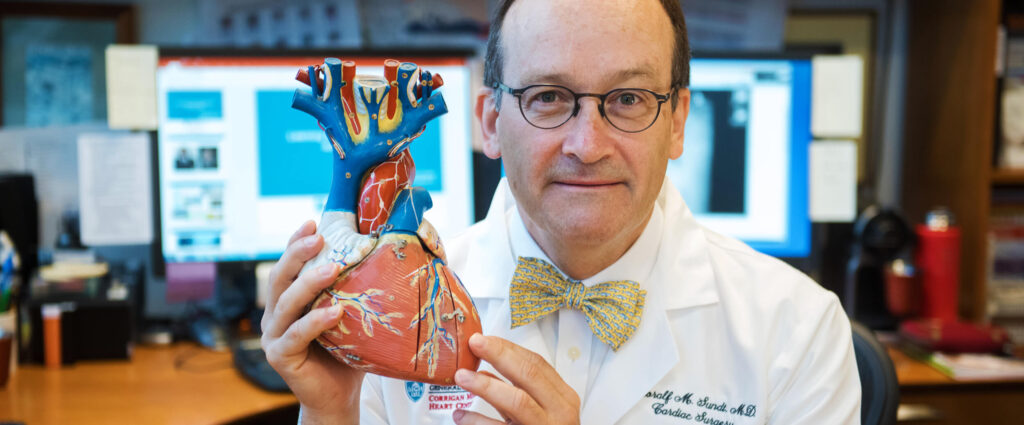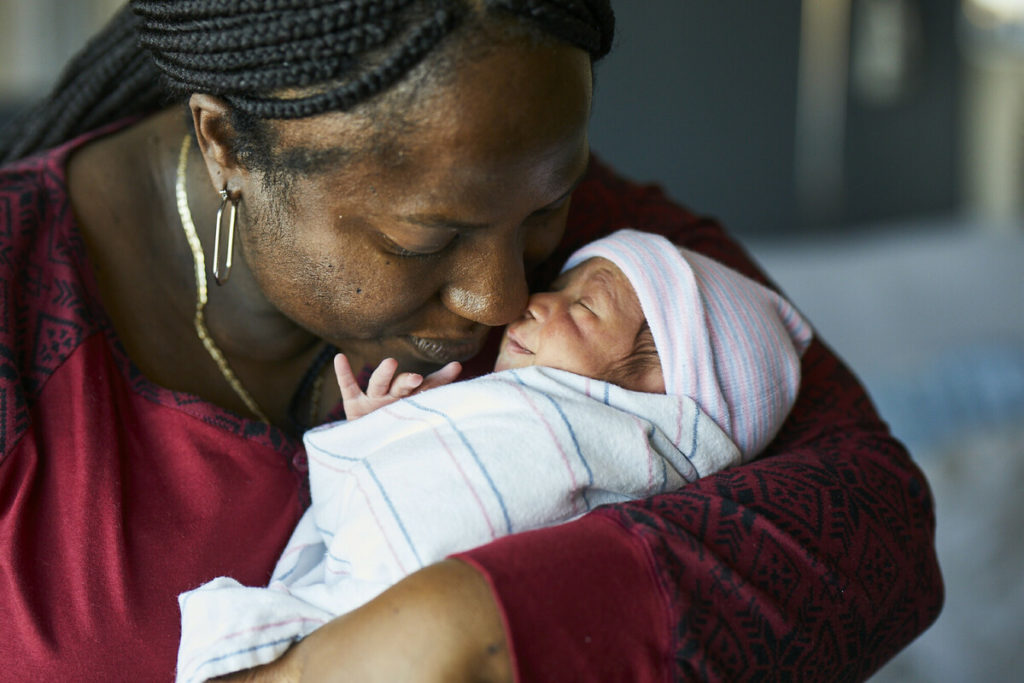Congenital heart disease (CHD) occurs when a defect forms in the heart or its surrounding blood vessels prior to birth. People born with CHD often require specialized cardiac care to achieve the highest level of health. This is particularly true for women with CHD who become pregnant or hope to become pregnant. With proper care and monitoring, most women with CHD can successfully carry a baby to term. But in some cases, pregnancy can pose a risk to the life of mother and baby. As co-director of Massachusetts General Hospital’s Cardiovascular Disease and Pregnancy Program and Adult Congenital Heart Disease Program, Doreen DeFaria Yeh, MD, specializes in the treatment and care of women with high-risk cardiac conditions in pregnancy. We recently asked Dr. DeFaria about what drew her to the field, and the particular challenges of operating a specialized heart health program.
What led you to focus your career on women’s heart health and pregnancy?
Early on, I had a fellowship rotation in congenital heart disease and, as it happened, the first few patients I saw were pregnant. I was amazed at the physiological challenges that pregnancy poses to people with congenital heart disease. Even a standard pregnancy is a stress test on the heart. But mothers who have CHD can sometimes be at high risk during pregnancy. I was fascinated right away. Thankfully, most of the women we see are able to deliver safely. But it takes a lot of training and close collaboration with our colleagues in obstetrics to manage those cases. Fortunately, the level of expertise we have here at Mass General is truly unique.
Can you give us an example of how your team collaborates to help patients?
Last year, I met a woman named Siada at the congenital heart disease outreach clinic we run in Worcester. Siada was born in Morocco with a very severe and complex congenital heart defect. She wanted to have a family, but after several miscarriages, she was losing hope. It turned out that two holes in her heart were causing low oxygen levels in her blood — which was the likely cause of her miscarriages. With help from the surgical team, we were able to close the holes — but pregnancy remained a serious risk. Despite this, she was committed to having a baby. So together with our colleagues in obstetrics, and Siada’s doctors in Worcester, we scheduled regular appointments to monitor her progress. In February of 2021, surrounded by an entire team including surgeons and anesthesiologists, she delivered a healthy baby boy here at Mass General. That outcome just wouldn’t have been possible without teamwork and collaboration.

What are the most common challenges you face caring for these patients?
The most common challenges facing our program are not care-related at all — they are logistical. Most of the patients we care for are in their 20s and 30s, and that’s a very vulnerable and unsettled time for a lot of people. Some are just trying to make a living and don’t have insurance or the money to cover a copay.
Because we are a specialty center, we see patients from across New England and beyond, so just getting to Boston can be a challenge for some. Others don’t make it back for follow-up appointments or change their phone numbers and we may lose track of them. Then there are technical issues, such as getting medical records from other hospitals. Many hospitals outside of this area lack the mechanisms to easily share records and imaging. In some cases, they are physically mailing us CDs with imaging, and that’s inefficient and time delays may be a disservice to the patient care.
How do you overcome these issues?
The short answer is staffing and infrastructure. This is a unique program, and there’s so much extra effort and coordination that goes into taking care of these very complex patients. We need help tracking down records, following up with patients, and with community outreach. And that requires personnel and time. The pandemic has taken a real toll on the health care system at large, but specialty programs like ours have been especially hard hit. We’ve lost nurses. We’ve lost ultrasound technicians, catheterization technicians and administrators. We’re spread thin right now.
What role can philanthropy play in your work?
Philanthropy is a critical part of providing better care to our patients. It helps support the cost of surgeries, helps provide all the necessary equipment. It helps pay our nurses and doctors, and can help reduce barriers for patients to get to specialized centers like Mass General.
I’m so grateful for the support we’ve received from our donors, and from foundations like Heartfelt Dreams. They were founded by Lori Ankerud — a patient of ours — and her husband Eric Ankerud, to support the needs of patients with Adult Congenital Heart Disease (ACHD) and raise awareness. Among the things they’ve done for us is cover transportation and hotel costs for patients and their families, in addition to support education around ACHD for both patients and families. And that gift has been transformative.
But there’s more we could be doing. I think if there’s ever been a time to think about supporting health care workers and programs like ours, this is the time. It’s a rainy day.
To learn about how you can support women’s heart health at Mass General, please contact us.


